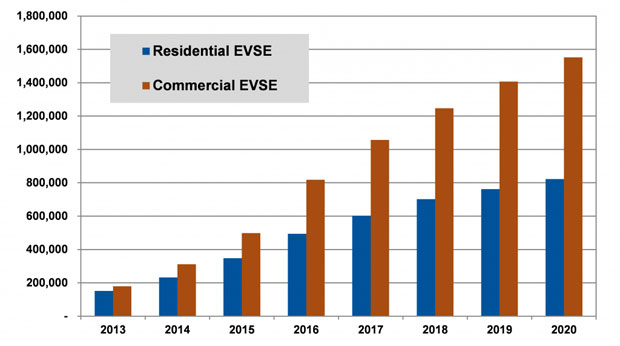A new report from Navigant Research analyzes the global market for PEV charging equipment sales and charging services, including global market forecasts for residential and commercial charging system unit sales and revenue from charging services through 2023.
The market for plug-in electric vehicle (PEV) charging equipment (also known as electric vehicle supply equipment, or EVSE) is expanding, while experiencing predictable growing pains. With the number of PEVs in use projected to reach 12 million globally by 2023, the market for EV charging services is likely to continue to evolve to respond to growing demand.
“Sales of EV charging systems are expected to grow steadily in the coming years, surpassing 2.5 million by 2023,” says Lisa Jerram, principal research analyst with Navigant Research. “That represents a significant market for providers of charging systems, but the market landscape and the business models, particularly for commercial charging, are yet to be fully defined.”
Residential chargers are increasingly a commodity, competing more on price than on innovative features, according to the report, making the market for commercial chargers (defined as installations outside vehicle owners’ residences) the most dynamic and the most uncertain. Public chargers continue to spread, and workplace charging is picking up. Some charging networks have usage fees, some charge via subscription, and some companies offer EV charging as a free service to entice customers or as an employee perk. Automakers and utilities are moving to the forefront in the financing and build-out of EV charging networks, the report concludes.

